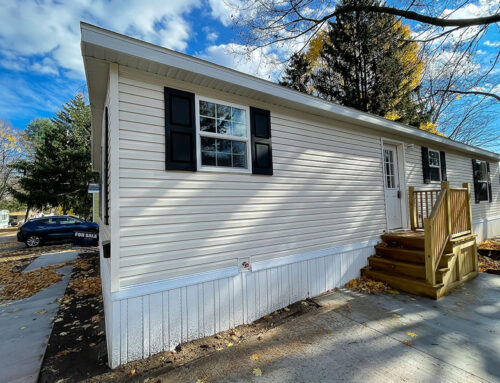There was a time when buying a short sale in NJ was all I could think about. Having tried my hand at buying auction homes first, and walking away with nothing much to show for my efforts, I decided that getting my hands on a house before it was ordered to a foreclosure auction was a smarter way to go. I soon found out, however, that the process of buying a short-sale property wasn’t any less complicated and that I still might not be going after the best possible deals. Still, I gave it the ol’ college try. And, when a new investor named Hermon approached me at Hidden Grounds Coffee about how to buy a short sale in New Jersey, I shared with him all that I’d learned.
The Deal on Buying a Short Sale in NJ
When a homeowner is struggling to meet their mortgage payments, the bank sometimes agrees to short the loan—that is, to allow the homeowner to sell the house for less than what’s owed—and forgive the balance. This frees a homeowner in financial duress from a burden they can no longer afford and keeps them from losing their house through foreclosure. Their credit score isn’t as harshly affected and they may even get to walk away with relocation assistance from the bank. So, with a short sale, a homeowner who’s lost their job and fears losing everything else gets to walk away with some dignity and, sometimes, some cash.
The short sale of a property can potentially benefit all the parties involved, including the bank or credit union holding the note and the real estate investor who buys the house. Since New Jersey is a judicial foreclosure state, lenders have to sue to begin foreclosure proceedings. And, the court almost always sends the house to be auctioned to the highest bidder. To avoid dealing with the time and the expense of this process, then having to sell a distressed property that’s been absorbed back into its inventory, lenders often agree to short the loan.
Investors then have the opportunity to buy a property for potentially much less than its market value. And, because these houses haven’t been sitting unoccupied for lengthy periods of time with the former owners forced out under emotional duress, the properties tend to be in better shape than foreclosure auction homes. So, you’re less likely to have to contend with a money pit while still having a home you can repair and resell. You’ll also have a better chance of gaining access to the property to perform a home inspection—which is not guaranteed once a house goes to auction—to get a good idea of your costs, and your potential returns, too.
The long process of buying a short sale, however, can throw a wrench into your plans and your potential profits.
- Uncertainty. Short sales are sometimes advertised on the open market with real estate agents and can be found filed at your local county courthouse, but, that doesn’t mean the bank has agreed to a short sale, only that the homeowner is probably hoping for one. So, though you may actually find a potential short sale by doing some research, you may not get the chance to buy it at a shorted price. Spinning your wheels on what ends up as a rehabbed market-value bank-owned home is very frustrating, to say the least.
- Competition. You won’t be the only investor who’s trying to find and buy short sales. With competition for these properties strong, the potential to drive up the approved purchase price is high. Since your goal for every investment property is to pay significantly less than its current market value in order to help maximize potential returns, the last thing you want is a bidding frenzy. But, that’s exactly what you could get. If offers roll in from investors who don’t know how to correctly calculate costs or a home’s ARV, they’re likely to offer too much to begin with—and, not at all what you want to try to compete with.
- Time. Assuming you have the right tools to help you offer the right price, you’re going to have to wait on the bank’s answer to see if they agree. In New Jersey, state legislation requires that lenders respond to an offer within 60 days. But, that response can be an acceptance, rejection, or a request for more information. If more information is needed, your wait time gets extended. You could end up shuffling paperwork for six months or longer just in the hopes the bank finally approves your offer. If approval actually comes, it could arrive during a time when renovating and selling an investment property is not ideal for receiving optimal returns—like a cold New Jersey winter. If your offer is rejected, any funds you provided as a good faith deposit will get returned. But, neither your time nor the other opportunities you had to pass on while waiting will get returned.
Despite the complicated process of acquiring a short sale and the doubts it raises about whether you’re really getting a good deal, the idea behind buying them is something I can get behind. Finding motivated sellers of distressed homes is one of the best ways to purchase properties at below-market prices. But, if you can find them before the bank ever gets involved—or have a lead-generating strategy that helps them find you—your potential returns will be better off and, quite likely, the seller will be better off, too.
Buy Before the Banks Get Involved to Gain a Better Deal
Don’t get me wrong. I bought a few short sales back when I first started investing in real estate. But, for all the time it took to get the bank to approve an offer on a house, I could’ve bought, renovated, and sold one investment property and been on my way toward purchasing another. It took me a few rounds of chasing short sales—and becoming an independently owned and operated HomeVestors® franchisee—to figure that out. Lucky for you, and also for Hermon, it doesn’t have to take so long to learn to find the best deals. It will, however, take opening a HomeVestors® franchise in New Jersey, like me.
As an independently owned and operated HomeVestors® franchisee some of the best marketing tools and resources, like the nationally-known “We Buy Ugly Houses®” advertising campaign. This unique advertising reaches distressed homeowners looking for a way out of an “ugly” situation before the bank gets involved. This kind of advertising power helps you gain access to potentially better deals that are less complicated to buy.
Are looking for a better way to find the best-distressed property leads? Call HomeVestors® today to find out more about your franchise options!
Each franchise office is independently owned and operated.
Contact
"*" indicates required fields





